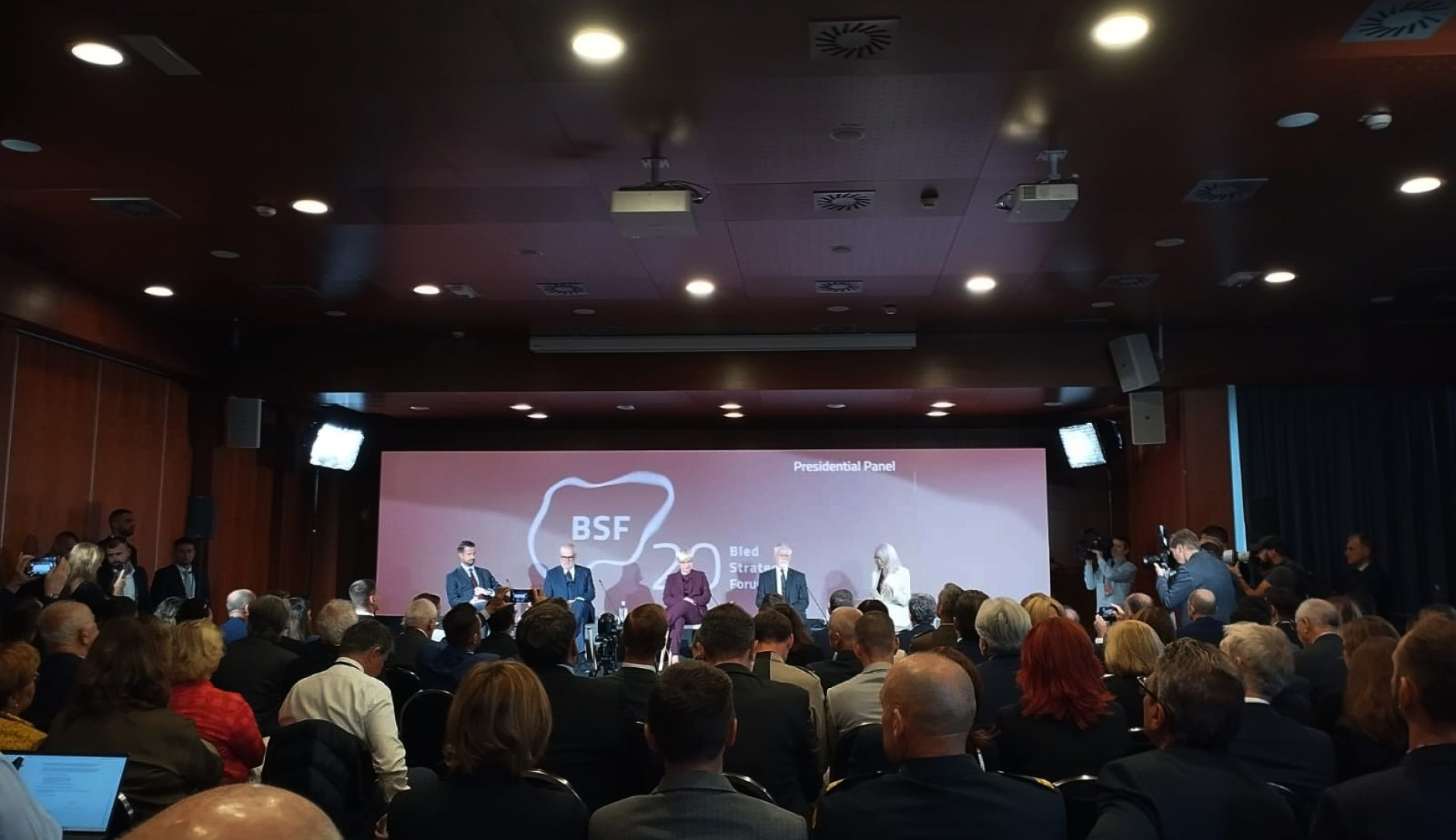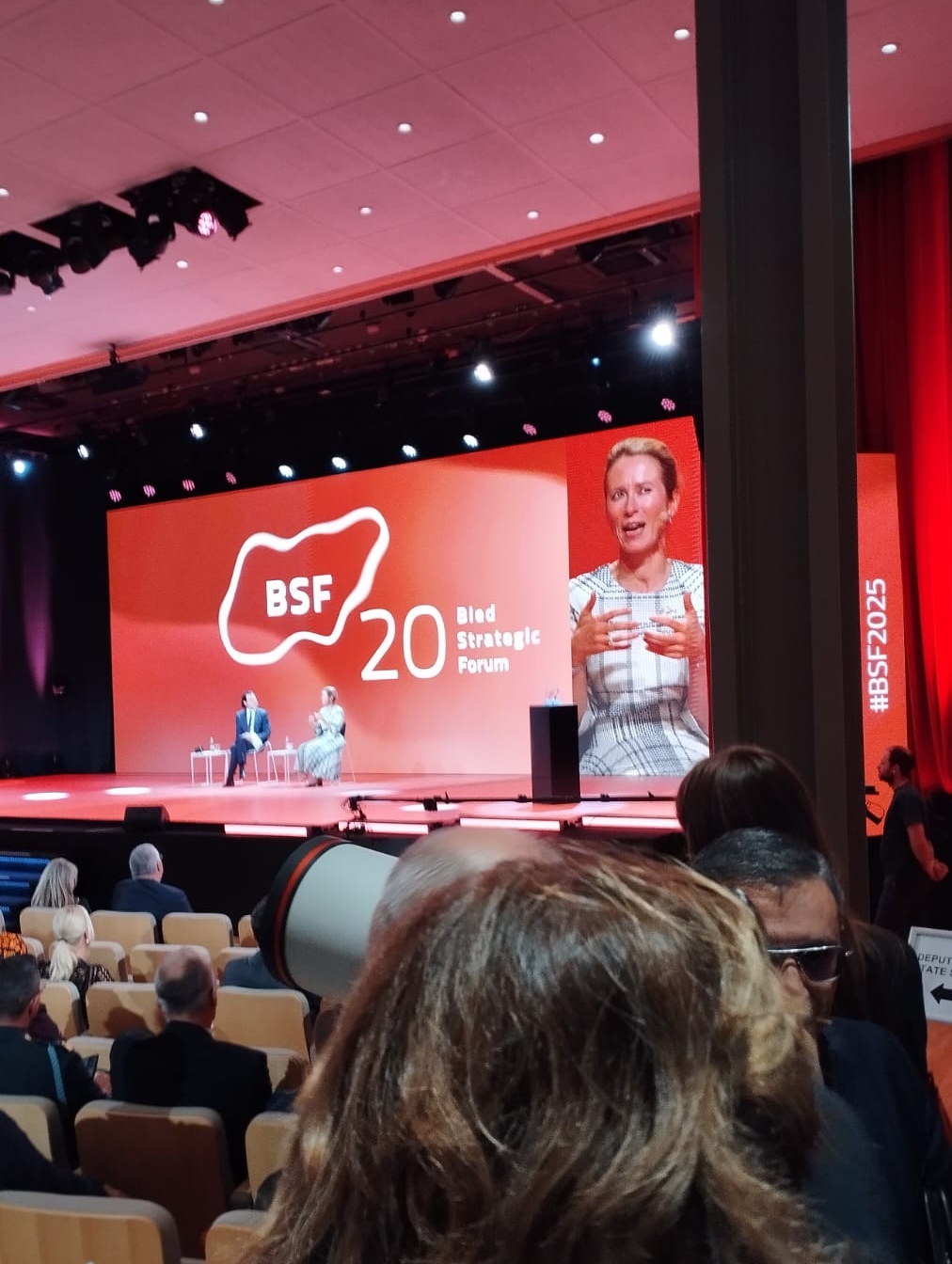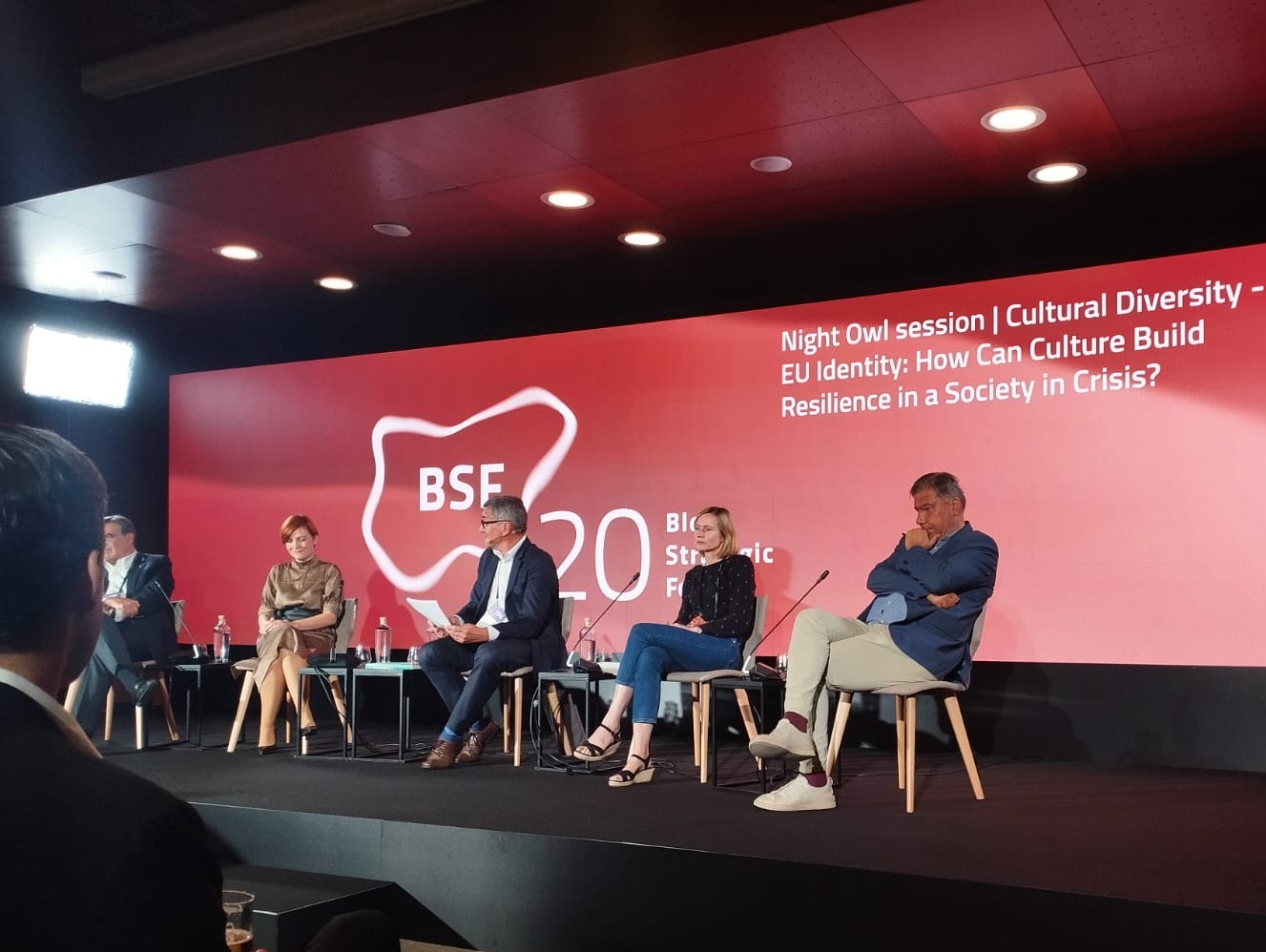Bled Strategic Forum: Smaller EU member states need to think bigger
The recent 20th Bled Strategic Forum showed three things: (1) the future of the European Union is discussed on and beyond its eastern borders, (2) the largest member states dictate the EU’s foreign policy agenda but are absent and (3) a Forum that can set exclamation marks should not shy away from challenging the status quo.

The EU needs a foreign policy doctrine - not a bus full of state leaders
Not only was the EU-US trade deal weighed down by large member states protecting their export market from German cars to French wine. Antonio Costa indirectly admitted in Bled that the US-EU trade deal was also influenced to assure US support of Ukraine. Fittingly, a bus full of state leaders with NATO and Ursula von der Leyen tried to sway the US president into actually earning his coveted Nobel peace prize.
What if all 27 state leaders wanted to participate in these negotiations? Do they all fly separately? Does the EU send around a doodle for a Zoom call? The EU is not the United States of Europe where one person calls the shots. But today’s opposite and unanimity clause is not much better, because the EU is kept in perpetual stasis.
Without a proper foreign policy doctrine defining our objectives and representation, Europe will always be subject to large member states calling the shots - while the smaller ones, such as Slovenia relegated to bystanders. We should demand more!
Leadership is not a matter of size
 It was surprising that on a two day event with many European and state leaders, the largest member states were mostly absent. Considering they dominate the European foreign policy agenda, one would expect to also have high-level representatives of Germany, France and Italy participate in a conference that was heavily focussing on multilateralism and leadership.
It was surprising that on a two day event with many European and state leaders, the largest member states were mostly absent. Considering they dominate the European foreign policy agenda, one would expect to also have high-level representatives of Germany, France and Italy participate in a conference that was heavily focussing on multilateralism and leadership.
When EU leaders do not inspire, such as Kaja Kallas on whether she thought the EU still had geopolitical weight. When principal state leaders do not participate in the discussions on how we want to make representative and democratic decisions. When they even fail to uphold the values and ideas that Europe is supposed to stand for with their ambiguity with regards to Gaza. Shouldn’t we give more of a platform to smaller member states?
Their perspective is not one of autonomy, but of cooperation. And we’ve come to a point where more cooperation is becoming essential. Also in this regard, Slovenia should not shy away from wanting to contribute to how the EU must function in this “runaway world”.
Let’s really challenge the status quo
 Panels in Bled touched on a plethora of topics. The young generation was given a voice. EU Membership candidates and representatives from around the world could share their perspectives. One missing element however was how we will actually challenge the status quo.
Panels in Bled touched on a plethora of topics. The young generation was given a voice. EU Membership candidates and representatives from around the world could share their perspectives. One missing element however was how we will actually challenge the status quo.
Whether United Nations or European Union, countless panelists were contemplating a gordian-type situation with many actors still adding knots instead of trying to untangle our international institutions and render them operational again. To illustrate the dilemma, a secure and free Europe can mean that member states invest in their national defense industries instead of pushing the needle towards reforms and an actual European military that would be more than the sum of its parts (with a price tag probably also below 5% of GDP).
In today’s times, the Bled Strategic Forum should strive to also be catalysator of change by giving a platform to the voices that propose new perspectives and challenging solutions. By setting a tone that has an echo beyond Bled, Slovenia would underline its role as facilitator of European reforms and could probably quickly welcome state leaders from western Europe. Because, as in the movie “Field of dreams”, if you build it (that Europe), they will come.